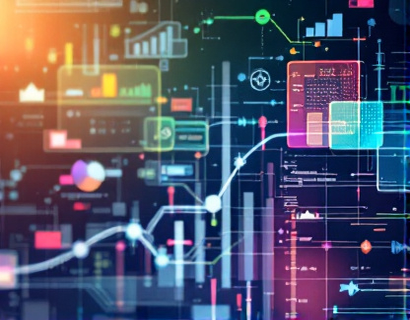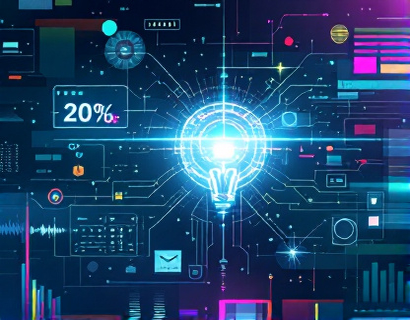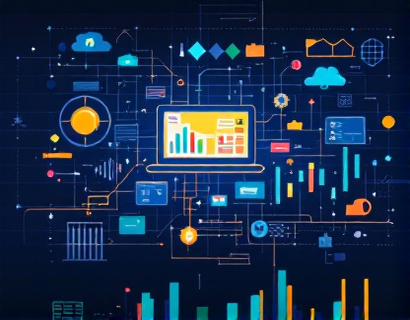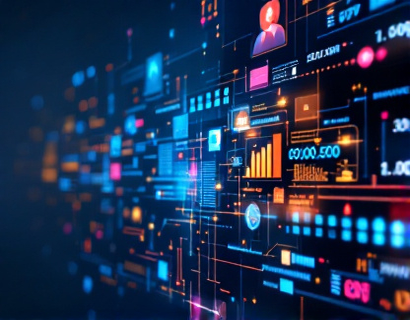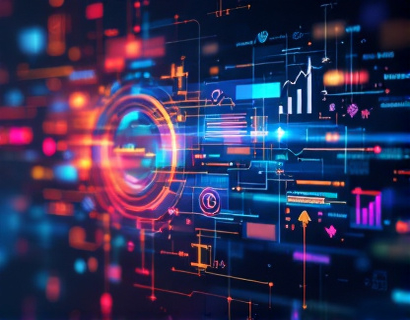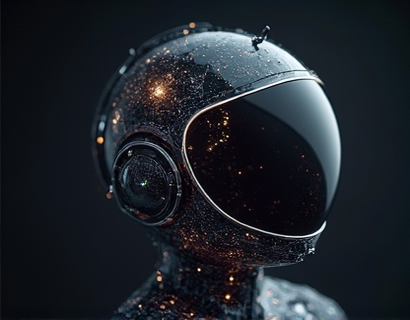Unlocking Digital Transformation: Leveraging AI and Crypto for Enhanced Productivity and Innovation
The digital landscape is evolving at an unprecedented pace, driven by the convergence of artificial intelligence (AI) and cryptocurrency. This transformation is not just a trend but a fundamental shift in how businesses and individuals approach productivity and innovation. For forward-thinking professionals and early adopters in the tech sphere, understanding and leveraging these technologies is crucial for staying competitive and relevant. This article explores the transformative power of AI and cryptocurrency, offering insights into how their integration can revolutionize workflows and drive significant advancements.
Understanding AI and Cryptocurrency
Artificial intelligence, defined as the simulation of human intelligence processes by machines, particularly computer systems, encompasses learning, reasoning, and self-correction. AI technologies include machine learning, natural language processing, and robotics, each playing a pivotal role in automating tasks and providing insights from complex data sets. On the other hand, cryptocurrency, exemplified by Bitcoin, represents a decentralized digital currency secured by cryptography. Beyond currency, blockchain technology, the backbone of cryptocurrencies, offers a transparent, immutable ledger system with vast applications beyond finance.
Enhancing Productivity with AI
AI's impact on productivity is profound and multifaceted. Automation of repetitive tasks is one of the most immediate benefits. By offloading mundane activities to AI systems, professionals can focus on higher-value tasks that require human creativity and critical thinking. For instance, AI-powered tools can manage scheduling, data entry, and even preliminary data analysis, freeing up time for strategic decision-making and innovation.
Moreover, AI enhances decision-making through advanced analytics and predictive modeling. By processing vast amounts of data quickly and accurately, AI can identify patterns and trends that humans might miss. This capability is invaluable in industries ranging from healthcare to manufacturing, where data-driven insights can lead to optimized processes and improved outcomes.
Collaborative tools enhanced by AI also foster better teamwork. AI-driven communication platforms can analyze team dynamics, suggest optimal collaboration strategies, and even translate languages in real-time, breaking down barriers and enhancing global collaboration.
Innovation Through Cryptocurrency and Blockchain
Cryptocurrency and blockchain technology offer a new paradigm for trust, transparency, and security. Beyond financial transactions, blockchain's decentralized and immutable nature makes it ideal for various applications. In business, it can streamline supply chain management by providing a transparent and tamper-proof record of transactions, enhancing traceability and reducing fraud.
Smart contracts, self-executing contracts with the terms directly written into code, automate and enforce agreements without the need for intermediaries. This not only reduces costs but also increases efficiency and reliability. In the context of intellectual property, blockchain can securely and transparently manage rights and royalties, ensuring creators are fairly compensated.
Furthermore, the tokenization of assets allows for fractional ownership and easier trading, opening up new investment opportunities and democratizing access to capital. This can be particularly transformative for startups and small businesses, providing them with alternative funding sources and broader market reach.
Synergy Between AI and Cryptocurrency
The true power of AI and cryptocurrency emerges when they are combined. Blockchain provides a secure and transparent environment for AI models and data, ensuring integrity and trust. For example, AI algorithms can be deployed on a blockchain to process and analyze data without the risk of tampering or bias. This synergy enhances the reliability of AI-driven insights and decisions.
Decentralized AI platforms are another exciting development. These platforms allow AI models to be trained and run on a distributed network, leveraging the computational power of multiple nodes. This not only accelerates processing times but also reduces the risk of data breaches and central points of failure. Users can pay for AI services using cryptocurrency, creating a new economic model for AI consumption.
Token-based incentives can also motivate contributions to AI development. By rewarding developers and data providers with tokens, these platforms can build vibrant communities that continuously improve and expand AI capabilities. This decentralized approach to AI development can lead to more diverse and robust models, benefiting a wide range of applications.
Case Studies and Real-World Applications
Several industries are already reaping the benefits of AI and cryptocurrency integration. In healthcare, AI-powered diagnostic tools enhanced by blockchain ensure patient data is securely and accurately shared among healthcare providers, leading to better patient outcomes. In the finance sector, decentralized finance (DeFi) platforms use AI to optimize trading strategies and manage risks, offering more efficient and accessible financial services.
The supply chain industry has seen significant improvements with blockchain-based tracking systems that use AI for predictive maintenance and demand forecasting. This combination reduces delays, lowers costs, and enhances overall efficiency. In the creative industry, blockchain ensures artists and creators receive fair compensation for their work, while AI tools assist in content creation and distribution.
Challenges and Considerations
While the potential of AI and cryptocurrency is vast, there are challenges to consider. Regulatory uncertainty remains a significant hurdle, as governments worldwide grapple with how to govern these emerging technologies. Ensuring compliance and navigating the legal landscape is crucial for businesses adopting these technologies.
Technical complexity is another barrier. Implementing AI and blockchain solutions requires specialized knowledge and resources. Organizations must invest in training and hiring experts to effectively integrate these technologies into their operations.
Security and privacy concerns cannot be overlooked. While blockchain is inherently secure, the integration with AI systems can introduce new vulnerabilities. Robust security measures and continuous monitoring are essential to protect sensitive data and maintain user trust.
Future Outlook
The future of AI and cryptocurrency is bright, with ongoing advancements promising even greater integration and innovation. As AI models become more sophisticated and blockchain technology matures, the possibilities for enhancing productivity and fostering innovation will continue to expand. The convergence of these technologies will likely lead to the development of new industries and business models, further transforming the digital landscape.
For professionals and businesses looking to stay ahead, embracing AI and cryptocurrency is not just an option but a necessity. By understanding and leveraging these technologies, they can unlock new levels of efficiency, security, and creativity, positioning themselves as leaders in the digital revolution.





